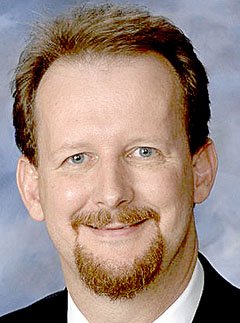Farmington's journey towards adopting a career academy model started well before my term in administration. Although the school was having pockets of success, the question emerged about what can we do better to prepare ALL of our students for life after high school.
This introspection caused us to look for ways to move beyond the common misconception that in order to be "successful," students must go to college. We discovered that is simply not true.
For a few decades people have separated college and career into separate entities. So we began looking at ways to bolster the academic rigor for our students who want to go to college but also offer more opportunities for all of our students.
A team of Farmington High teachers and administrators visited the Mountain Home Career Academies to discover its secret for preparing students for their chosen career pathways. What we discovered was no magic potion but a practical change in mindset about how we view students and education.
Rather than separating students into different paths towards college or careers, Mountain Home merged everyone into one path: careers. The paradigm shift was to understand that everyone will end up in a career, but college may only be a stepping stone towards work. In fact, there are plenty of careers that require less formal education than my Master's degree and pay much more than I make.
We discovered the real key is to be intentional with students about selecting a career: not just settling for an answer with no follow up or follow through. The critical element is to walk alongside students while they are on their career journeys and provide them with experiences, real-world opportunities, and practical guidance while they figure out what they want to do.
After the Mountain Home visit, we sent teams to National Career Academy Coalition Conferences (held in Phoenix, Washington, D.C., and Tampa) to find out more. Impressed with this educational reform revolution that was occurring throughout the United States, we began to look at elements that would be the best fit for Farmington. We also met with Mike Harvey from the NWA Economic Council to look at data that analyzed the needs for this region because he was meeting with business leaders to determine their needs for the future of Northwest Arkansas.
At the same time, we were proposing to build a new high school because we were rapidly outgrowing our current facility. You can call it Providence, serendipity, or the perfect storm, but the Arkansas Department of Education was also beginning to allow local schools more freedom and flexibility to help educate and prepare their students. We applied to be labeled a School of Innovation but were denied. Then we applied to be a conversion charter school to gain waivers that would help implement programs we felt would benefit our students. When we applied, we had no idea that there was grant money tied to receiving this designation, so when we were granted charter status, we were thrilled to have monies that could be used to help build the programs of the Farmington Career Academies.
Again, looking at the needs of our region, we developed career academies based upon business needs and student interest. Thus, the PRIME, SHIELD, and ACE academies were born! We are still very much in the infancy stage in their development, but our overall mission remains the same: provide academic rigor, career experiences, and increased opportunities to help students achieve their career goals. This mission is executed through a variety of programs such as career mentor groups, professional electronic portfolios, new career pathways, and nurturing career relationships through the academy model. We strive to foster relationships with local business leaders who in turn provide knowledge, experience, and input to further enhance our students' educational experiences.
As a graduate and employee of Farmington High School, I am excited about the direction that we are heading. The shift to using a career academy model does not require additional funds, but it does require a change in mindset. This model is extremely practical and requires us as educators to be very intentional in our student relationships and provide programs that have a career focus. We strive to offer the best, because at the end of the day our students really are worth it!
CLAYTON WILLIAMS IS ASSISTANT PRINCIPAL WITH FARMINGTON HIGH CAREER ACADEMIES.
General News on 11/22/2017
